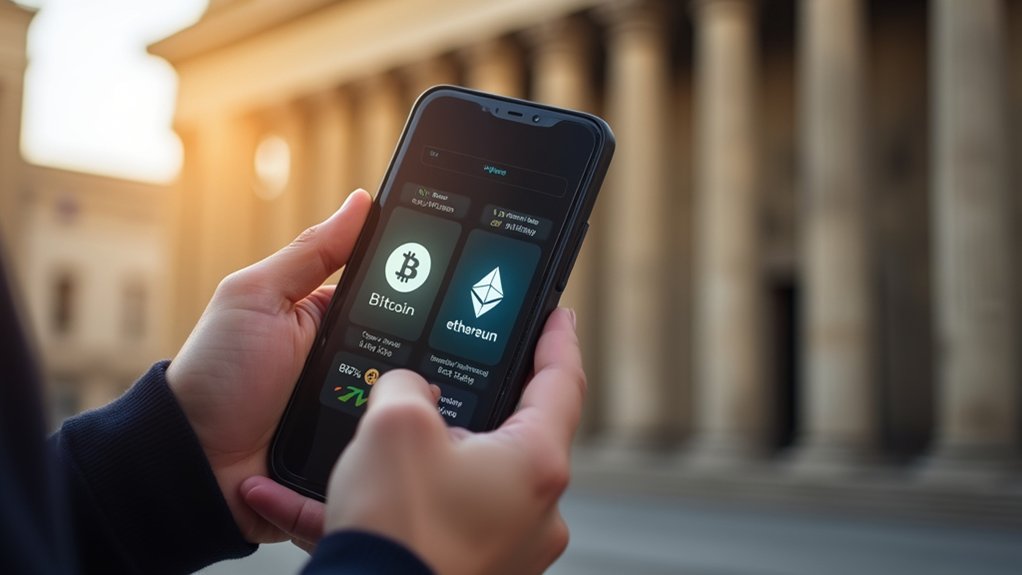While most traditional banks have spent years wringing their hands over cryptocurrency‘s regulatory uncertainties, BBVA has quietly positioned itself as Spain’s first major financial institution to offer direct Bitcoin and Ethereum trading services to retail customers through its mobile banking app.
The July 2025 launch represents more than mere technological integration—it signals a fundamental shift in how established financial institutions approach digital assets. Rather than relegating crypto to specialized platforms or third-party custodians, BBVA has embedded these services directly within its existing mobile infrastructure, treating Bitcoin with the same operational seriousness as traditional securities.
BBVA’s crypto integration transcends technology—it represents established banking’s paradigm shift toward treating digital assets as legitimate financial instruments.
What distinguishes BBVA’s approach is its regulatory positioning under Spain’s National Securities Market Commission (CNMV) license, granted in March 2025. This authorization, combined with compliance under the European Union’s Markets in Crypto-Assets (MiCA) regulation, provides legal clarity that many crypto-native platforms still lack. The irony is palpable: traditional banks, long considered dinosaurs in the digital asset space, now offer more regulatory certainty than many cryptocurrency exchanges.
The service’s proprietary custody infrastructure addresses a critical pain point for retail investors—security without sacrificing accessibility. Customers can buy, sell, and hold crypto assets through the same app they use for checking account balances, eliminating the friction of managing multiple platforms and private keys. This custodial approach directly contrasts with the cryptocurrency ideal of user sovereignty, where individuals maintain complete control over their digital assets through private key management.
BBVA’s bank-grade security infrastructure extends to crypto holdings, though the bank conspicuously avoids providing investment advice, leaving customers to navigate volatility independently. The bank’s transparency, disclosure, authorization and supervision approach ensures comprehensive investor protection while maintaining regulatory compliance.
Gonzalo Rodríguez, Head of Retail Banking for Spain at BBVA, frames the initiative as democratizing crypto access—a noble goal that also happens to capture market share from fintech competitors. The service’s rapid rollout to all eligible retail customers within a week demonstrates institutional efficiency that crypto-native platforms often struggle to match. This retail-focused approach distinguishes BBVA’s current offering from its previous crypto initiatives that primarily targeted high-net-worth individuals through private banking services.
This move builds upon BBVA’s existing digital asset strategy in Switzerland (2021) and Turkey (2023), suggesting a methodical expansion rather than impulsive market entry. Plans to expand beyond Bitcoin and Ethereum to include stablecoins and tokenized assets indicate BBVA’s commitment extends beyond mere experimentation.
The bank’s success may well determine whether Spain’s banking sector embraces crypto integration or retreats to traditional services.








